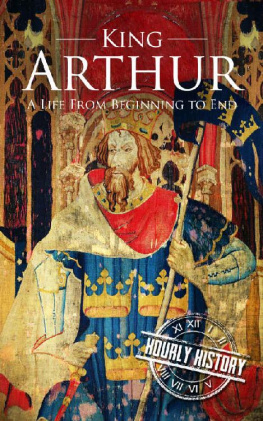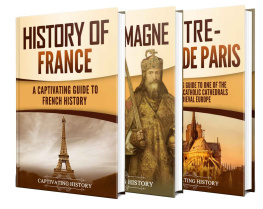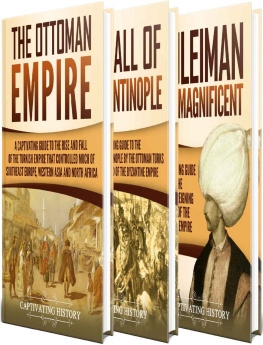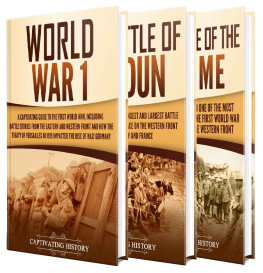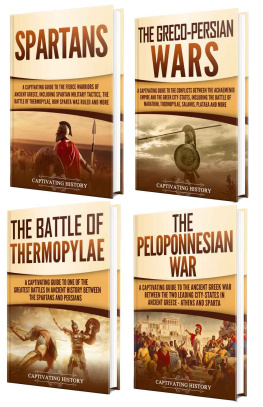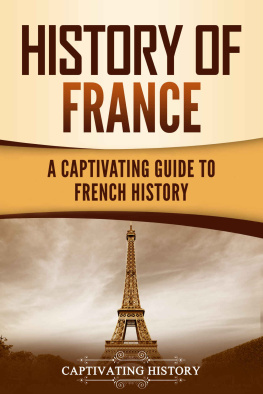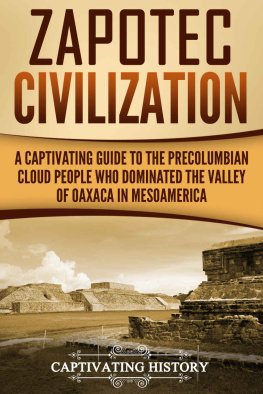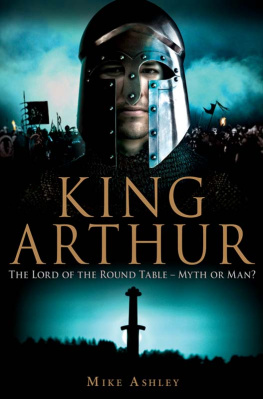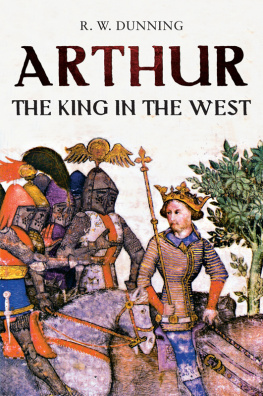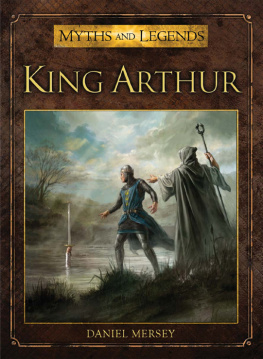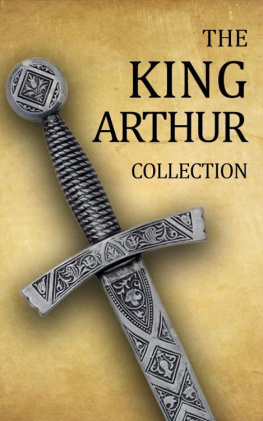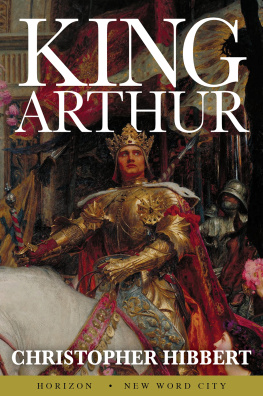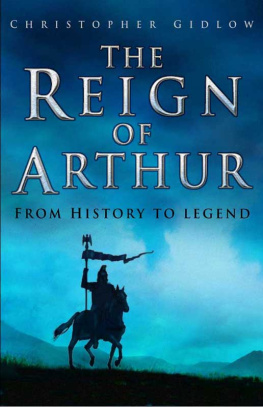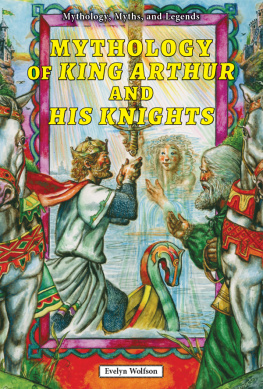History - King Arthur: A Life From Beginning to End
Here you can read online History - King Arthur: A Life From Beginning to End full text of the book (entire story) in english for free. Download pdf and epub, get meaning, cover and reviews about this ebook. year: 2017, publisher: Hourly History, genre: Religion. Description of the work, (preface) as well as reviews are available. Best literature library LitArk.com created for fans of good reading and offers a wide selection of genres:
Romance novel
Science fiction
Adventure
Detective
Science
History
Home and family
Prose
Art
Politics
Computer
Non-fiction
Religion
Business
Children
Humor
Choose a favorite category and find really read worthwhile books. Enjoy immersion in the world of imagination, feel the emotions of the characters or learn something new for yourself, make an fascinating discovery.
King Arthur: A Life From Beginning to End: summary, description and annotation
We offer to read an annotation, description, summary or preface (depends on what the author of the book "King Arthur: A Life From Beginning to End" wrote himself). If you haven't found the necessary information about the book — write in the comments, we will try to find it.
History: author's other books
Who wrote King Arthur: A Life From Beginning to End? Find out the surname, the name of the author of the book and a list of all author's works by series.
King Arthur: A Life From Beginning to End — read online for free the complete book (whole text) full work
Below is the text of the book, divided by pages. System saving the place of the last page read, allows you to conveniently read the book "King Arthur: A Life From Beginning to End" online for free, without having to search again every time where you left off. Put a bookmark, and you can go to the page where you finished reading at any time.
Font size:
Interval:
Bookmark:
Copyright 2017 by Hourly History.
All rights reserved.
The legend of King Arthur stretches back over 15 centuries to the fifth century AD. In Britain, over 500 years of Roman occupation had just come to an abrupt end. The resulting power vacuum presented an opportunity to neighboring Germanic tribes who saw fertile land for the taking and no organized resistance to their invasion. From around 450 AD onwards, hordes of Angles, Saxons, and Jutes descended on Britain, bringing bloody war with them. Those native people who were not murdered on sight by the invading tribes were forced from their homes, their villages pillaged or seized. The people of Britain were in desperate need of a savior and soon found one, in the figure of a courageous Romano-Celtic prince, a native warrior who made it his mission to save Britain. His name was Arthur.
Except, in all likelihood, his name wasnt Arthur. If this native warrior prince existed at all, he was probably known as the much more Roman-sounding Ambrosius Aurelianus, but we know little more than that. From this point on, the importance of historical evidence begins to give way, and it becomes futile to look at King Arthur through the lens of historical biography. Over recent centuries, historians have pieced together what scant evidence there is pointing to the existence of a real King Arthur, and as there is no more we can add to this story we must take the more interesting path of tracing King Arthurs mythology.
The first seeds of the vigorous Arthurian myth were planted by a priest named Gildas in the sixth century. Gildas offered just a few lines of text describing a courageous Roman nobleman who led his people to victory in a battle against invading Germanic tribes, but from here Arthurian legend quickly grew into an arresting narrative of good against evil. In subsequent centuries, the imaginative power of Celtic poets transformed King Arthurs story from a simple battle narrative into an otherworldly fantasy with a cast of colorful characters.
From here King Arthurs legend passed through the hands of Geoffrey of Monmouth, another holy man who wrote Arthurian legend as historical fact. Geoffrey drew on earlier manuscripts such as Gildas but also liberally added his own spectacular details, and his manuscript directly inspired the other writers of Arthurian legend after him. The French poets of the Vulgate Cycle and the fifteenth-century writer Malory, who penned the best-selling Le Morte dArthur, used Geoffreys text as their prototype.
Every representation of King Arthur over the years has been a product of the time and place in which it came into being. In medieval times, when Britain needed to be assured that Christianity was the only true religion and that crusades overseas were right and just, King Arthur emerged as a Christian savior. When French-speaking Normans made Britain their home and wanted to hear romantic tales of a heroic knight of the past in their mother tongue, cycles appeared with a love triangle at their core. When anxious Victorian Brits sought the comfort of a chivalrous ideal that nolonger existed, if it ever did at all, Tennyson obliged and the mournful Idylls of the King appeared.
Arthurian legend is a key component of Britains national mythology. The progression of King Arthurs story from a few sentences penned by a priest in an ancient manuscript to the basis of twenty-first-century Hollywood blockbuster movies tells us a great deal about the deep history of Great Britain and how this collection of islands sees itself.
The legend of King Arthur has its roots in real British history. Britain was first successfully invaded by the Roman Empire in the year AD 43, and for the subsequent four centuries, the majority of the land was under Roman rule. By the end of their first century in Britain, the Romans had transformed the country from a collection of warring tribes to the province of Britannia and made it a part of the Roman Empire. Emperor Caesars maxim, divide and rule was never put to such good use.
Yet despite repeated attempts, Rome was unable to subdue the powerful Pict and Caledonian people of what is now Scotland. The province of Britannia ended at the border between England and Scotland; a border that Emperor Hadrian fortified in AD 122, building an epic wall that stretched the entire width of the country from east to west.
In the early fourth century, Rome was forced to pull a huge number of troops out of Britain in order to defend the imperial city in Italy against barbarian armies threatening to invade from the north. This withdrawal left Britain isolated and at risk of invasion from both foreign aggressors and their enemies on British soil such as the Picts from the north and the Scots from Hibernia (modern-day Ireland). The greatest foreign threat to Britain came from the Saxons, natives of modern-day northern Germany and Denmark. The third-century ambitious parties of Saxons had been crossing the North Sea and the channel, settling in South East England where they built homes and farms. For the most part, the Saxons stealthy invasion had caused little unrest, but as time went on these Germanic invaders demanded more and more land from their unwitting hosts.
Britain severed her allegiance to Rome in the early fifth century under the leadership of Constantine III, an imperial pretender who declared himself the emperor of Praetorian Prefecture of Britain. The dissolution of the Roman Empire around the mid-fifth century left Britain extremely vulnerable to invasion. Soon, the already established Saxons were joined by fellow Teutonic tribes, the Jutes and Angles. The Jutes hailed from Jutland in Scandinavia while the Angles came from Germanys northern Baltic coast. Members of these three tribes, the Saxons, Jutes, and Angles, flooded into Britain and guided by their totemic Gods, Woden the God of War and Thor the God of Thunder, crushed what feeble opposition Britain could rally.
The invaders forced native Brits (who were by now Romano-British due to centuries of mixed marriages between British and Romans) to flee to the west. The Angle tribesmen and women settled mostly in what became known as East Anglia. Some Saxons stayed in the south but stretched out along the coast, calling their land South Saxon, now known as Sussex. Other Saxons settled east of London, calling their region East Saxon, now Essex, and the Jutes settled mostly in and around Kent. Collectively the invaders became known as Anglo-Saxons.
Not content with taking control of the southeast of Britain, the leaders of the Saxons, Angles, and Jutes pushed west and started seizing even more fertile land for themselves. By the year 495 AD, the Anglo-Saxon aggressors had almost completely wiped out the Romano-British people and had taken possession of Britain as far north as York and as far west as Southampton.
When the Romans left Britain, they didnt just take their belongings with them; they took their entire way of life. Over the centuries, Roman rule had civilized Britain. The abrupt departure of the Romans left a vacuum the Anglo-Saxons were happy to fill, but the two invaders could not have been more different. The Romans had introduced government to Britain, central political and economic structures that had created an orderly and prosperous life for most. They had also established long-distance trade, money, taxes, roads, sanitation, pottery, and glass. When the Romans left, they took all of these innovations with them and under the illiterate, barbaric Anglo-Saxons the British were reduced to a barter economy and lived in a more primitive state than their ancestors before.
Font size:
Interval:
Bookmark:
Similar books «King Arthur: A Life From Beginning to End»
Look at similar books to King Arthur: A Life From Beginning to End. We have selected literature similar in name and meaning in the hope of providing readers with more options to find new, interesting, not yet read works.
Discussion, reviews of the book King Arthur: A Life From Beginning to End and just readers' own opinions. Leave your comments, write what you think about the work, its meaning or the main characters. Specify what exactly you liked and what you didn't like, and why you think so.

